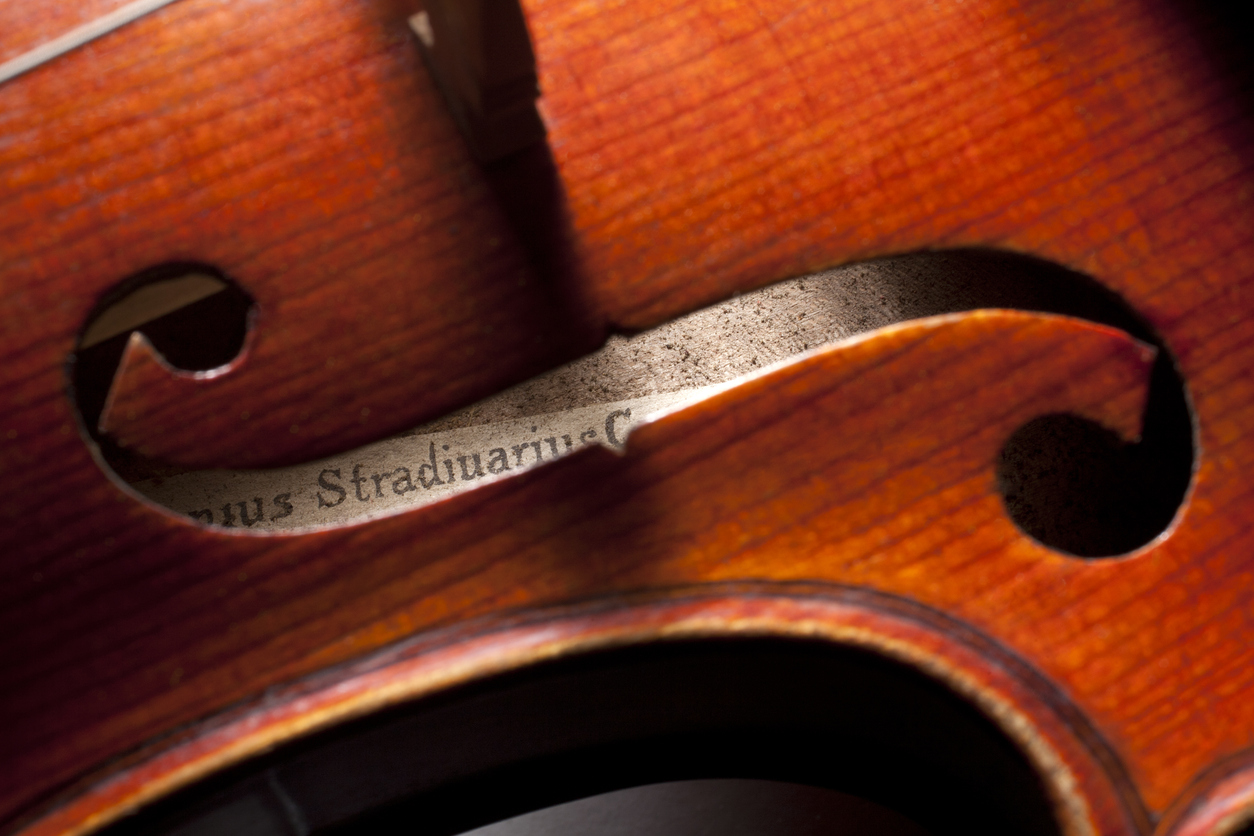On Air Now
The Classic FM Hall of Fame Hour with Tim Lihoreau 9am - 10am
24 May 2019, 16:46
The priciest instruments can be found on the market for over £10m – and yet, the average musician earns less than £20,000 a year. So why do musical instruments continue to demand such high prices?
Here are a few features of an instrument which might add to its overall worth...
Its branded name or maker
Let’s use violins as an example: Stradivarius and Guarneri violins both carry the prestige of their names. The Stradivari family’s violins are the high watermark of string instruments, and violinists have insisted for hundreds of years on their unrivalled sound quality. Similarly, the Guarneri family’s violins are rare, and known for their beautifully unique union of Venetian and Cremonese styles. Essentially, you pay a higher price for a more highly regarded brand.

The antique value of the instrument
If an instrument was made 300 years ago, you can generally assume that it will be more expensive than one made last year. The value of most instruments appreciate with age, so although a well-made contemporary violin may produce an excellent sound, it won’t have the antique value of a 17th-century violin.
Knowing that your instrument was made over 300 years ago can also be quite special; you never know which outstanding musician might have played that instrument before you. Remember that bit in Friends, when Chandler wants to buy an expensive tux because Christopher Reeve wore it to the Superman premiere in 1978? Case in point.
The high quality of sound
This is a tricky one. Some argue that older violins have a more resonant sound because of the way they're made and the material used (sidenote, there's a school of thought that the wood used by Stradivari was denser than today's because of a mini Ice Age). Others believe that although these old Italian violins are the most highly reputed in the string industry, listeners are often unable to distinguish between cheaper contemporary instruments and Stradivari or Guarneri violins.
So the joy of owning a Strad or a Guarneri might be more important than knowing whether it actually produces a better sound than a cheaper, modern violin… maybe (sorry, Strad owners).
The priciest instruments are usually handmade
A handmade instrument requires intensive labour, specific materials, and the time of a highly trained professional. Although machine-made products are less susceptible to human error, they won’t receive the same attention to detail that a professionally handmade instrument would.
You would pay more for a rare piece of handmade jewellery than a run-of-the-mill machine-made bracelet. Violins, flutes and trumpets are no different.
The oldest Italian violins can be bought for prices from anywhere in the hundreds of thousands of pounds, to the millions: the world record was set in 2010 when a Stradivari violin was bought at auction by an anonymous buyer for $16m (that's around £12.3m). The buyer then donated the instrument to Anne Akiko Meyers who now performs on it around the world.
Seem a tad extortionate? It's worth bearing in mind too that half of professional musicians earn less than £20,000 a year. On top of that, insurance can cost a musician thousands of pounds a year. So how on earth do they afford such expensive antique instruments?
This is where wealthy benefactors, charities and music colleges come in. Benefactors will often buy an expensive instrument and lend it to a musician (as in the case of Anne Akiko Meyers). Other musicians may have the option to borrow from their music school or college on a long-term basis. In other words, it’s very hard (and now very unusual) to actually own your own Strad.
However, if you do manage to get your hands on one, you will be pretty much set for life: if you ever decide to sell it in later life, the instrument’s lifetime appreciation will essentially pay for your retirement.
You at 75:
For more insight into what makes a Stradivarius violin so special, click here. And to hear a real-life Stradivarius in all its glory, here is German violinist Arabella Steinbacher with hers...


Promoted by Bounce